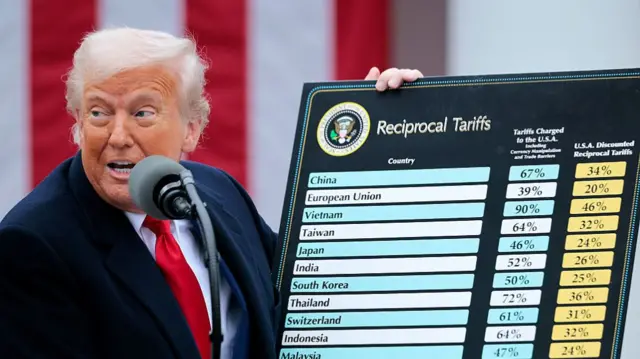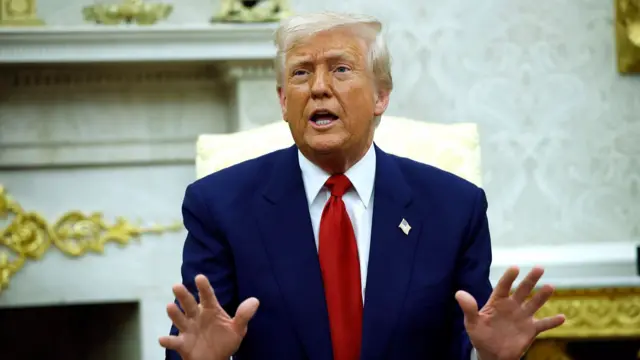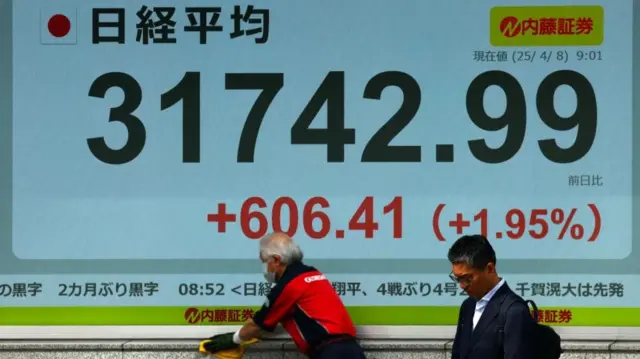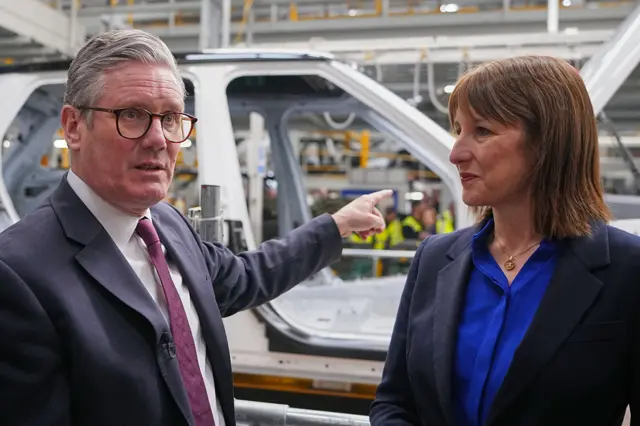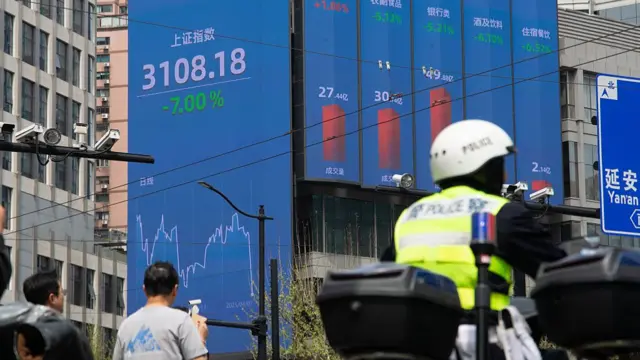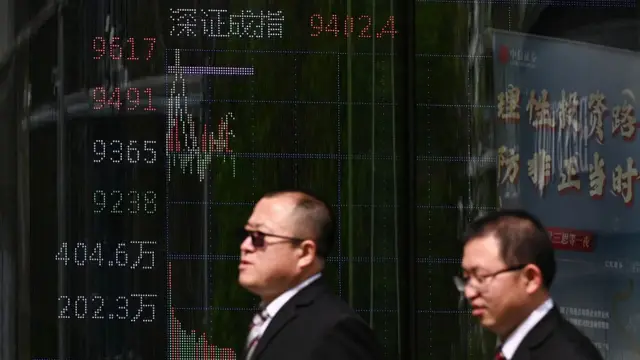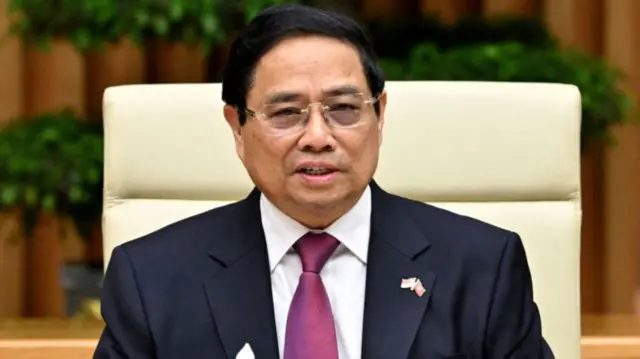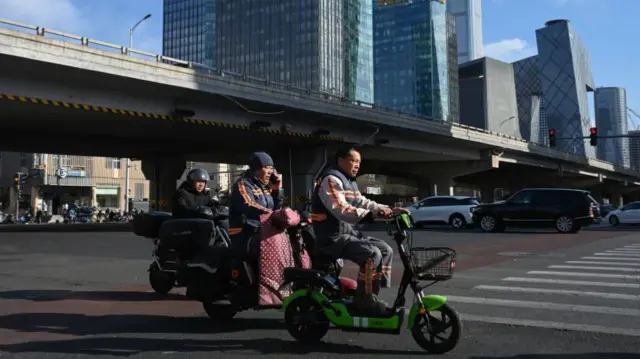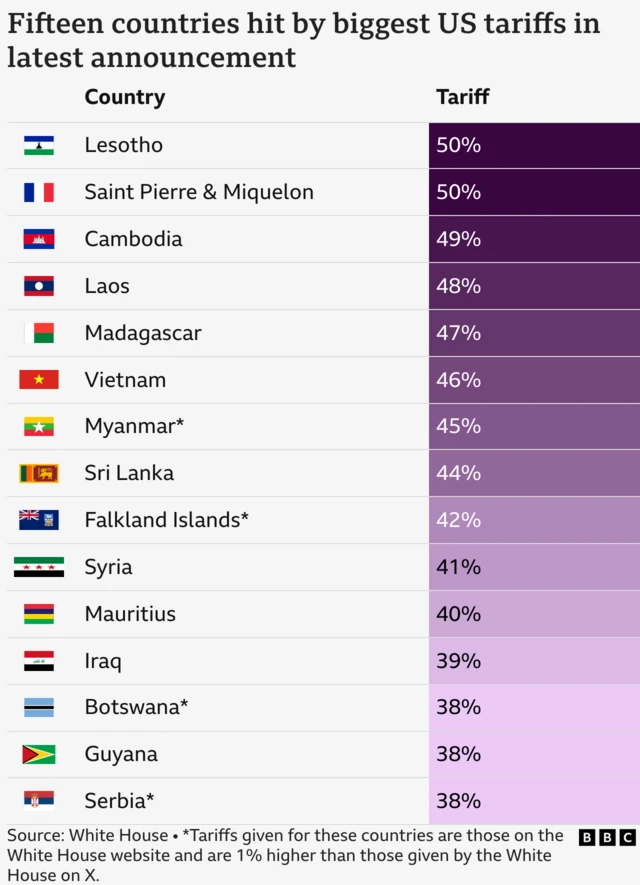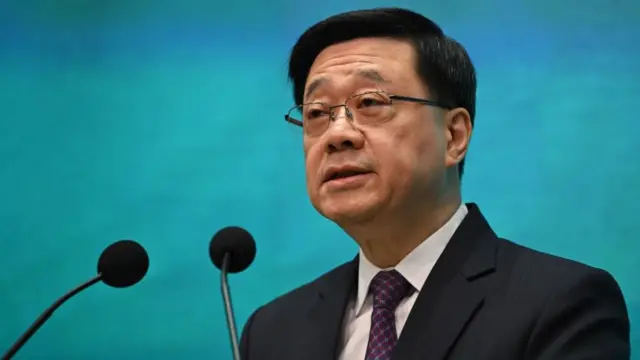UK close to trade deal with US - but who knows if or when Trump will sign itpublished at 07:37 BST 8 April
 Henry Zeffman
Henry Zeffman
Chief political correspondent
As the trade war between China and the US intensifies, on the other side of the world the UK continues to pursue its own strategy of seeking a bilateral deal with President Trump.
For weeks in the run-up to the tariffs being imposed by the US, the UK sought to negotiate an economic agreement with Washington which would, among other things, mean the tariffs being reduced.
Yet in the days before Trump’s big announcement last week it became clear that the president was set on imposing blanket global tariffs.
The government still hopes that deal could be signed.
In fact, those close to the negotiation say it is essentially there, focusing on technology co-operation but covering various other parts of the economy too. What they admit remains something of a mystery is when, or whether, President Trump might actually sign it.
The longer he does not, the more questions you will hear here in the UK about the government’s approach.


